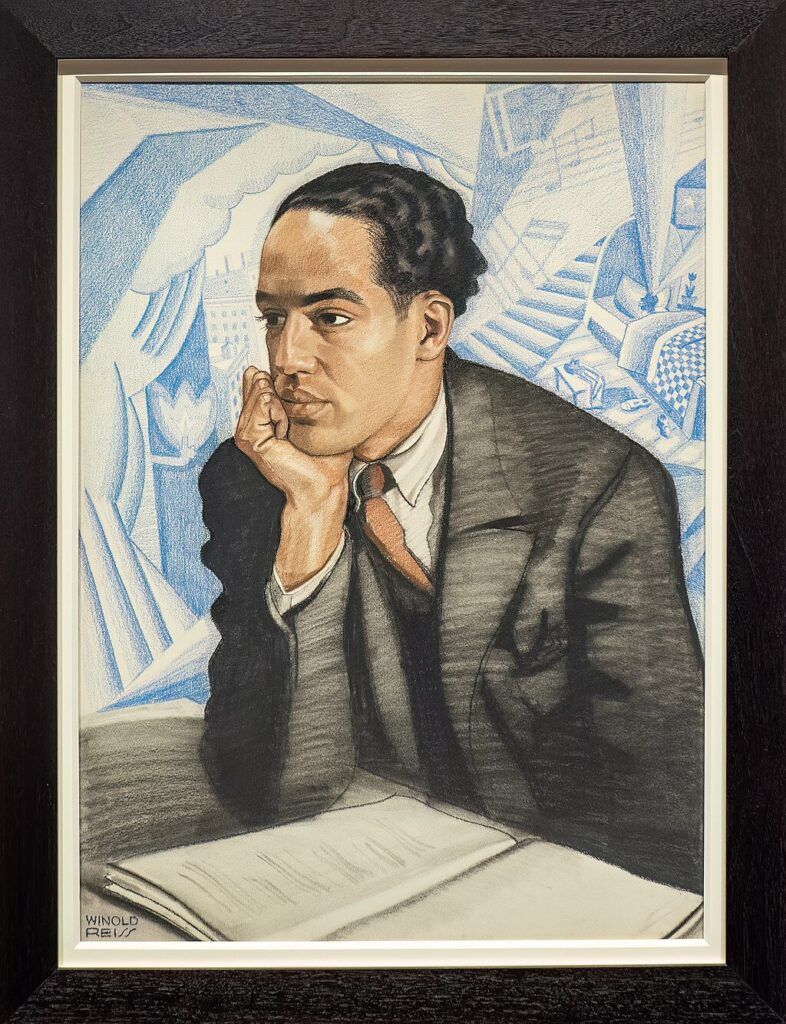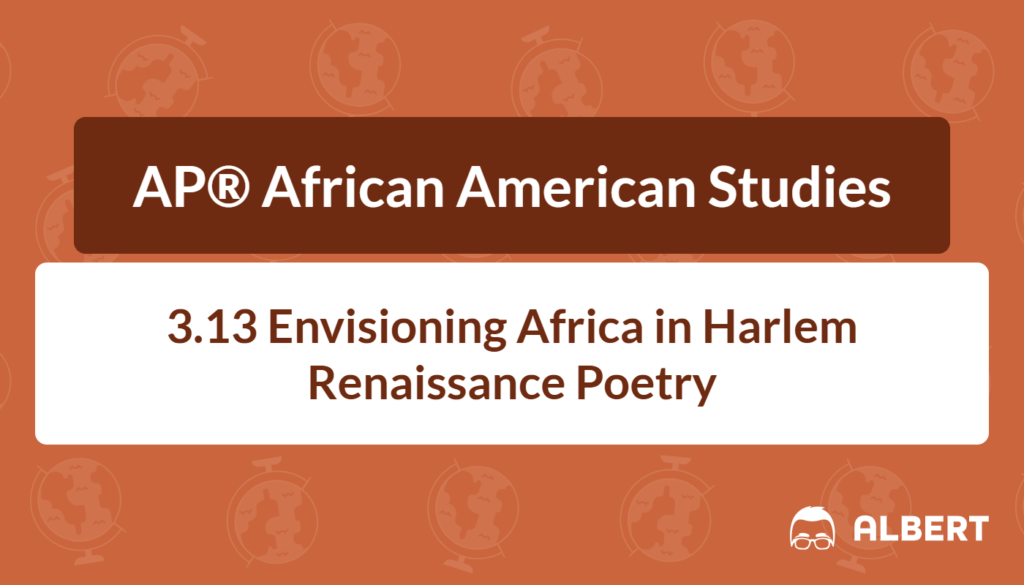What We Review
Envisioning Africa in Harlem Renaissance Poetry
Introduction
The Harlem Renaissance was a period of remarkable creativity among African American writers, artists, and thinkers in the early 20th century. During this time, poets often looked to Africa as a source of inspiration and cultural identity. Their poems challenged harmful stereotypes and celebrated African heritage. This article focuses on how these poets expressed their connections to Africa, revealing both personal reflection and social commentary. The goal is to show the strong bond between Harlem Renaissance poetry and African traditions, encouraging deeper study of these influential works.
Understanding the Harlem Renaissance
The Harlem Renaissance emerged in the 1920s and 1930s in New York’s Harlem neighborhood. However, its impact spread across the United States and beyond. This movement represented an artistic explosion encompassing literature, music, visual arts, and more.
Key Figures and Their Contributions
- Alain Locke: Known as the “Dean” of the Harlem Renaissance, he emphasized the importance of cultural pride.
- Langston Hughes: Celebrated for poetry that addressed both everyday Black life and deeper themes of identity.
- Zora Neale Hurston: An author and anthropologist who elevated African American folklore and speech.
These cultural pioneers helped transform American arts while challenging the negative effects of racism, segregation, and stereotypes. Therefore, their work is still studied today to understand how African Americans created new ways to express themselves.
The Cultural Significance of the Movement
The Harlem Renaissance encouraged pride in African heritage, unity among African Americans, and a search for creative freedom. Harlem Renaissance poets celebrated their culture in a way that had rarely been done before. Moreover, their voices inspired many to break away from mainstream narratives and embrace their unique stories. By exploring African traditions, they acknowledged the legacies of colonialism and Atlantic slavery. These efforts promoted a renewed sense of strength and cultural independence for future generations.
Exploring Connections to Africa
Responses to Colonialism and Slavery
Africa often appeared in Harlem Renaissance poem collections as both a mythic homeland and a place affected by colonial control. Colonialism and Atlantic slavery left deep scars on African and African American societies. Many writers saw poetry as a way to fight back against racist ideologies.
Claude McKay’s poem “If We Must Die” is a good example of this resistance. Although it does not reference Africa directly, it shows African Americans’ resolve to stand tall in the face of oppression. This spirit of defiance links back to African heritage, reminding readers of a proud lineage with a history long before slavery.
“If We Must Die” Themes:
- Resistance: The poem urges mutual support to overcome injustice.
- Pride: McKay emphasizes courage, showing that African Americans should refuse to be demeaned.
- African Heritage: While not explicitly stated, the poem’s intensity connects to a shared past of resilience.
Imagery and Stereotypes

Since harmful myths about Africa were common, Harlem Renaissance poets worked to present Africa as vibrant and meaningful. Langston Hughes’ poem “The Negro Speaks of Rivers” is often mentioned when discussing Africa’s significance. Hughes references rivers such as the Nile and the Congo, associating them with the cradle of civilization. Therefore, he reshapes Africa’s image as a place of wisdom and ancestry.
“The Negro Speaks of Rivers” Analysis
- Historical Timeline: The poem references many eras and locations, demonstrating Africa’s ancient cultures.
- Connection to Heritage: Hughes highlights shared ancestry, reminding readers that civilization began in Africa.
- Shift in Perspective: By celebrating Africa’s role, Hughes challenges biased views of the continent.
Personal Reflection and Identity
Individual Identity in African American Literature
Many Harlem Renaissance poets wrote about identity through an African lens. Their work explored what it meant to be both American and connected to African heritage. This search for self-discovery was partly a reaction to oppression. Yet it was also an exploration of spirituality, culture, and personal connection to a broader Black community. Therefore, the act of writing about Africa helped these poets reclaim a sense of belonging.
Poets’ Personal Connections to Africa
Countee Cullen’s poem “Heritage” is a direct questioning of how to feel about Africa. The poem asks if Africa is something to celebrate from afar or a land that shapes daily experience. Cullen’s expression of longing and cultural tension is typical of Harlem Renaissance poets. These writers struggled with a love for Africa, but experienced life in the United States.
“Heritage” (Countee Cullen) Exploration:
- Emotional Struggle: The poet wonders how to reconcile African ancestry with modern American life.
- Nature Imagery: References to drums, dancing, and the natural environment highlight a vibrant idea of Africa.
- Reflection on Identity: Cullen repeats questions like “What is Africa to me?” revealing an internal journey.
Required Sources and Their Connection to Africa
Several poets from the Harlem Renaissance wrote works titled “Heritage,” further proving how central Africa was to their creative exploration. Two notable examples are:
- “Heritage” by Gwendolyn Bennett (1922)
- “Heritage” by Countee Cullen (1925)
Both poems examine African ancestry and present connections between Africa’s past and the poets’ sense of self.
“Heritage” by Gwendolyn Bennett (1922)
- Historical Context: Published in the early years of the Harlem Renaissance, it reveals excitement for reclaiming African identity.
- Significance: Bennett’s words celebrate physical traits, cultural memories, and artistic passions linked to Africa.
- Impact: The poem encourages readers to consider the weight of African roots and how they shape modern life.
“Heritage” by Countee Cullen (1925)
- Historical Context: Written a few years later, it reflects the continuing search for cultural and spiritual ties to Africa.
- Significance: Cullen’s poem struggles with the dual identity of being both African and American.
- Impact: This work symbolizes how Harlem Renaissance poets transformed personal tension into art, urging readers to value their past despite complex feelings.
These poems reaffirm the major themes outlined in LO 3.13.A: exploring African heritage, challenging colonial and slave narratives, and identifying how Africa influences individual and collective identity.
The Influence of African Heritage on Contemporary Thought
The lasting influence of Harlem Renaissance poetry can be seen in modern discussions of identity and culture. Today, many consider Africa’s history when examining the African American experience. Therefore, contemporary writers and artists often draw strength and inspiration from this period. Themes of resilience and pride that appeared in Harlem Renaissance poem collections continue to inspire calls for social justice. African American thinkers still analyze their ties to Africa, understanding that these connections empower communities facing ongoing challenges.
Modern poets, spoken word artists, and musicians build on Harlem Renaissance ideas to craft works celebrating Black lives. These creations, often shared on social media, keep the conversation moving forward. They also encourage broader appreciation for African traditions and creativity. Consequently, the legacy of the Harlem Renaissance remains influential in the arts, in social movements, and in discussions about cultural pride.
Conclusion
In summary, Africa stood at the heart of the Harlem Renaissance, offering poets a means to reflect on their identities, resist oppression, and celebrate shared history. Colonialism and Atlantic slavery had left deep impressions, yet Harlem Renaissance poets found ways to reclaim Africa in their writing. Through uplifting imagery and personal reflection, they countered negative stereotypes and charted new avenues for Black expression.
Poets like Claude McKay, Langston Hughes, Gwendolyn Bennett, and Countee Cullen used their craft to bridge continents and generations. Their work remains relevant because it highlights the importance of honoring one’s roots while shaping a brighter, more inclusive future. Reading these poems today reveals how deeply intertwined African heritage is with the African American experience.
Quick Reference Vocabulary Chart
| Term/Concept | Definition or Key Features |
| Harlem Renaissance | A cultural movement of the 1920s–1930s showcasing African American creativity in literature, music, art, and more. |
| Colonialism | The practice by which a powerful country takes control of another region or people, often leading to economic, social, and political domination. |
| Atlantic Slavery | The forced transportation, sale, and labor of millions of Africans in the Americas, lasting from the 16th to the 19th century. |
| Claude McKay | A key Harlem Renaissance poet who wrote “If We Must Die,” highlighting themes of resistance and pride. |
| Langston Hughes | A prominent Harlem Renaissance poet who authored “The Negro Speaks of Rivers,” emphasizing Africa’s ancient cultural legacy. |
| Gwendolyn Bennett | A Harlem Renaissance poet who wrote “Heritage” (1922), focusing on reclaiming African identity and pride. |
| Countee Cullen | Another influential poet of this period who wrote “Heritage” (1925), exploring the complexities of having both African and American identities. |
| Imagery | Language used by poets and writers to create vivid pictures, appealing to readers’ senses, often conveying deeper themes or emotions. |
| Negative Stereotypes | Oversimplified and harmful ideas about a group, challenged by Harlem Renaissance poets who promoted a more accurate, dignified view of African cultures. |
| Identity | A sense of self shaped by personal experiences, cultural heritage, and social environment, examined in Harlem Renaissance poetry to understand the relationship between Africa and African American life. |
| Personal Reflection | A literary approach where authors explore their emotions, memories, or inner thoughts, such as Cullen’s introspection in “Heritage.” |
| African American Heritage | The collective traditions, history, and cultural experiences of African Americans, often linked to ancestral roots in Africa. |
By studying these terms and exploring the made-by-poets connections to Africa, readers can better appreciate why African heritage remains central to African American identity. The themes of resilience, pride, and self-discovery in Harlem Renaissance poetry continue to inspire future generations.
Sharpen Your Skills for AP® African American Studies
Are you preparing for the AP® African American Studies test? We’ve got you covered! Try our review articles designed to help you confidently tackle real-world AP® African American Studies problems. You’ll find everything you need to succeed, from quick tips to detailed strategies. Start exploring now!
Need help preparing for your AP® African American Studies exam?
Albert has hundreds of AP® African American Studies practice questions, free response, and full-length practice tests to try out.









